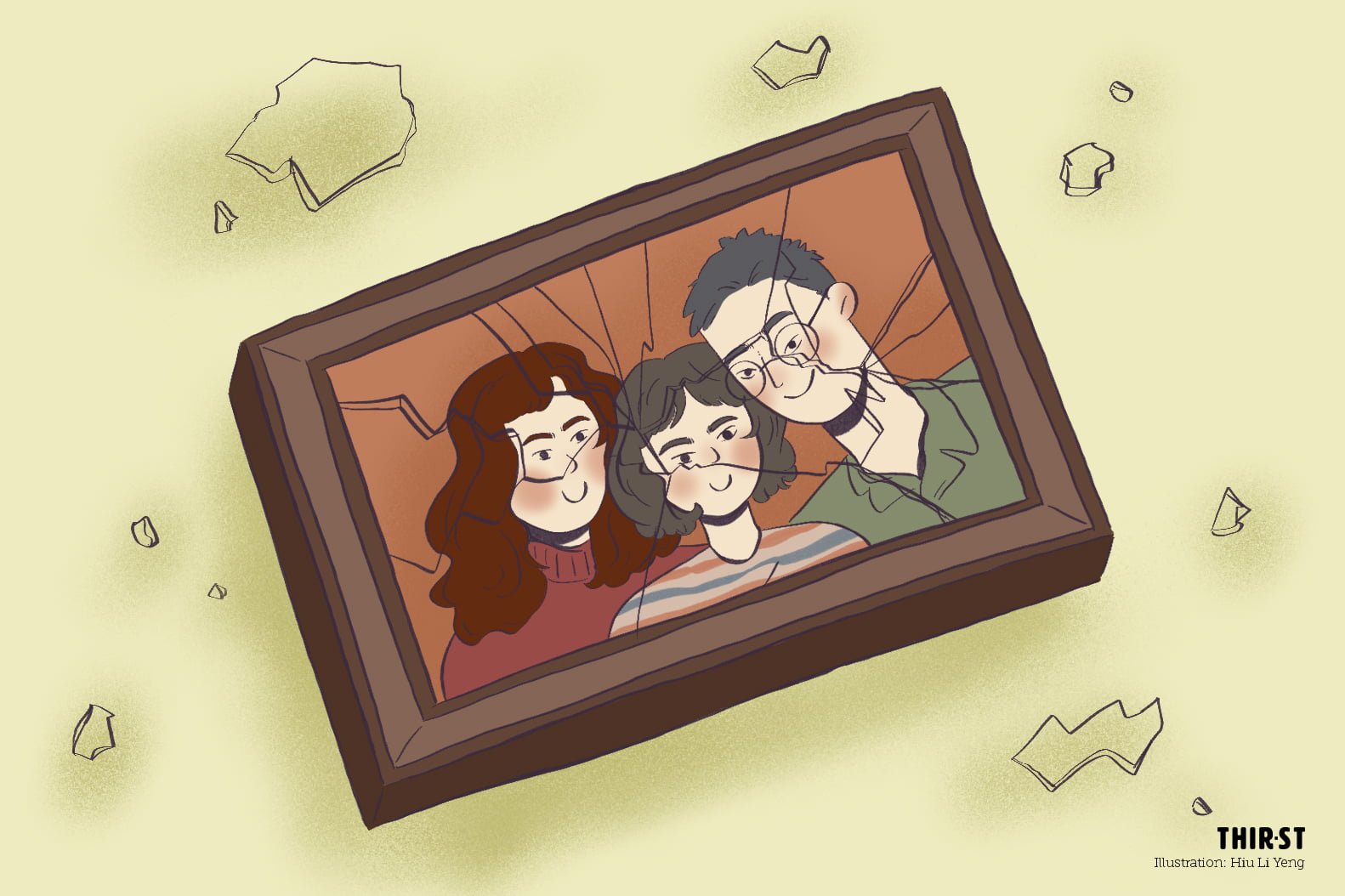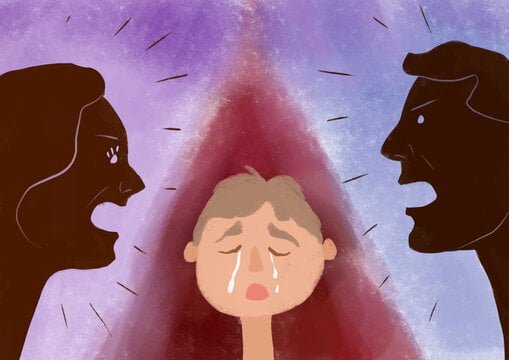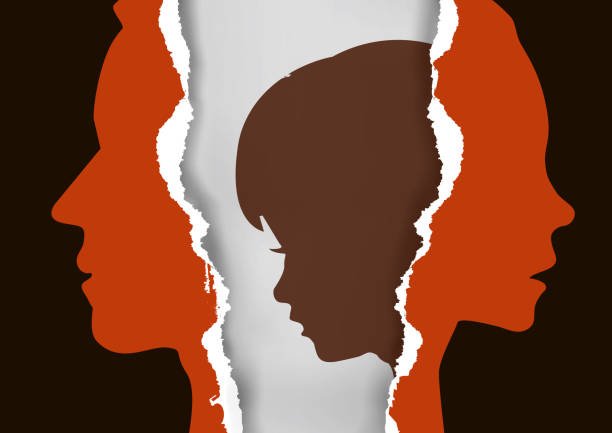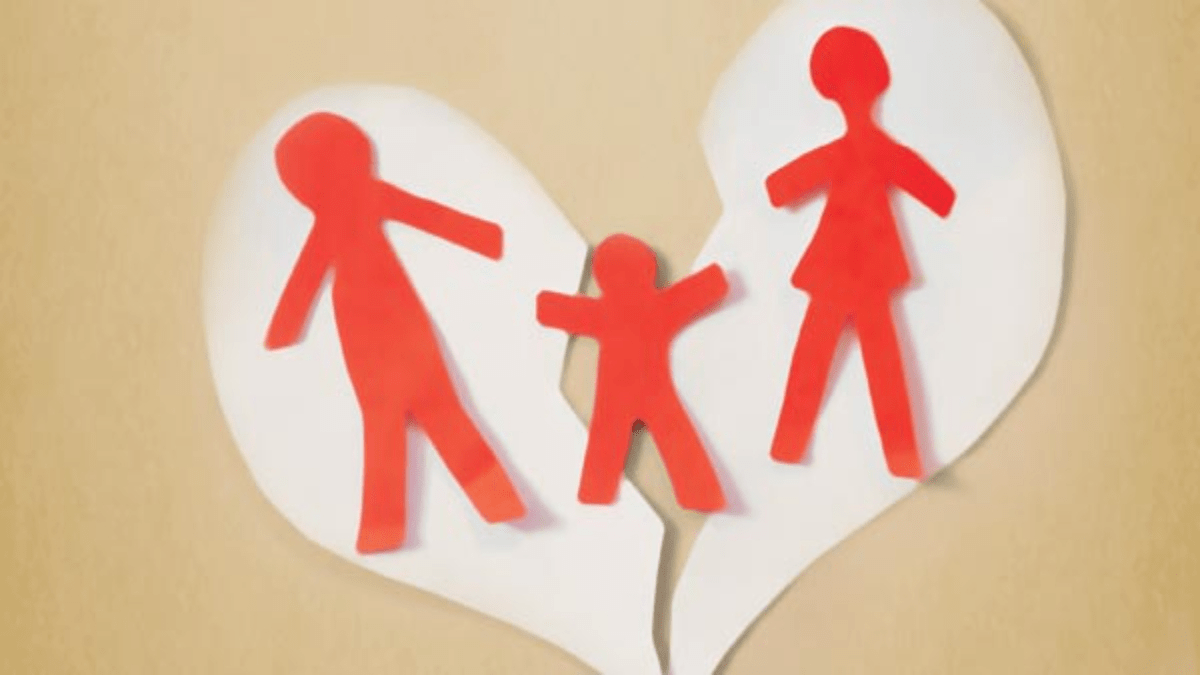When I think of the word “calm” I associate it with a traumatic childhood memory in my dysfunctional home. I think of a room with a fan running on its maximum capacity of speed. Why? Because it always blurred out the noise in the house and eventually, the noise in my head as well.
I have reached the 23rd year of my life and in the whole of these two decades, I have slowly gathered several visceral experiences growing up in a dysfunctional family. From the age of six, when my mother realised that I had acquired enough cognitive reception, I became the judiciary standpoint to my parent’s contention. I was a pawn to the workings of a broken household, each day acquiring a new flawed perspective. There are only a few things the mind of a little child can comprehend, and all I remember is running toward silence, which meant to me that everything was all right.

I get startled easily now, people conversing in a loud tone makes me alert but now, after all these years, reaching adulthood has made me aware of how that is not always, a sign of danger. Each day I have a revelation, where I trace a path back to my childhood and unlearn everything i learnt from living with a dysfunctional family, bit by bit.
Mental health is gendered
My mother also grew older and I realised that the times I was angry at her for breaking my silent sanctuary were points in the course of her suffering to the patriarchal norms of the family. Our mothers bear the brunt of trauma passed through generations. They are forced to carry on the definition of a happy family and any digression is unwelcomed. Less communication, silent acceptance, and internalised beliefs are embedded in the fabric of our families which we take on to our lives.
A study by Lancet, ‘The burden of mental disorders across the states of India: The Global Burden of Disease Study 1990–2017’ shows that depression, anxiety, and eating disorders are common and prevalent among women.
A study by Lancet, ‘The burden of mental disorders across the states of India: The Global Burden of Disease Study 1990–2017’ shows that depression, anxiety, and eating disorders are common and prevalent among women. The statistics do not surprise us. Mothers and daughters always suffer more than the male members of the family. Even after growing into adults, we cannot make this better. My mother suffered from depression and she had a very difficult time given she had so many factors that she had little control of. My parents have irretrievable differences, those which cannot be solved but just carried on.

My need to escape remains. I feel a need to escape the daily arguments and the high-pitched disapprovals even when sometimes, I can understand where it stems from. The reasoning isn’t always enough and it doesn’t solve the restlessness. Children are one of the most astounding products of humans. You might provide an excellent environment for them to grow and try to avoid what you think went wrong with your upbringing but they develop their own set of imperfections and when we put a child in the setting of a dysfunctional family, flaws run deep. This need for escaping brings guilt, to bear the brunt is perceived as a duty, by you or your family. This has built a complicated relationship with my mother. At the end of a tumultuous night of disturbances, I empathise with her and she says that I should settle somewhere far away from home.
The cycle of healing after living with a dysfunctional family
Breaking yourself from the cycle takes time and learning. You may change a thousand cities, take up new interests, and put yourself in a chaotic and busy life, but your history comes back to you. At this point in time, you would finally realise that it is something that affects your mental balance, but this “awareness” isn’t enough to avoid getting out of the emotional whirlpool. A friend once seeing me in distress told me to grow “callousness” but it is almost impossible to do it or I think it might take us nearly enough of a lifetime to achieve it. These are just not “flaws” these are learnings we have received in life; these are conclusions we have drawn in accordance with the situation. To the mind of the child, these were rational. To defy our own rationale takes time.
In a few instances, you also give up on the right thing, you grow weary of the effort you have to put into yourself every time. You wonder why it feels like carrying a boulder in your arms to do something that comes to others so easily. You assert that this deranged way of emotions is what you are. You are “made” that way and your whole life is a result of your affinity towards what troubles you, or maybe that is what I feel and I have also found friends, who make you feel in some way “normal” and whatever the word means to you.

Sometimes, as a child, we adjust ourselves around our abuse, be it physical or mental. We think we deserve this. Children think within their small worlds. We justify the suffering because there is a need to make sense of it. There is anxiety in accepting that we had no fault in what transpired. Children do not understand the meaning of boundaries, or unhealthy or healthy behavior. At least, I can assume this for my generation. This parallels with the concept of “Karma.”
After a ton of introspection, personal realisations, and the elongated process of therapy, and of course, not to mention the struggles of affording one, there might be a very slow path to healing.
After a ton of introspection, personal realisations, and the elongated process of therapy, and of course, not to mention the struggles of affording one, there might be a very slow path to healing. Healing has parts to it we do not realise until we go through it and it is different for everyone. The window of this correction is closed all the time, but we work through the little space that remains in the corners like the cold wind seeps in even through the closed windows.
While I write this, I am aware of the thousand similar narratives that exist on the internet. Similar narratives yet different in their own accord. When measured, there is only one conclusion, we pick up our own fights.

The only thing is to hold to the last morsel of hope and keep holding on to it. As said in several contexts, perfection is a myth. The “strive” for it is nothing more than another symptom, time, and a lot of therapy sessions. Often, I have told my confidantes, that one day I will at least have enough money to seek therapy. For me, that is a dream. This still might not promise betterment. You have to leave people behind and care less about them, which is not easy to do but maybe one day you will finally grow the “callousness” that your friend talked about. Putting yourself on your to-do list is harder than it seems. I do not know if it is utterly possible to break out of the cycle but we can certainly learn to deal with it. But we must remember, healing is not linear.




